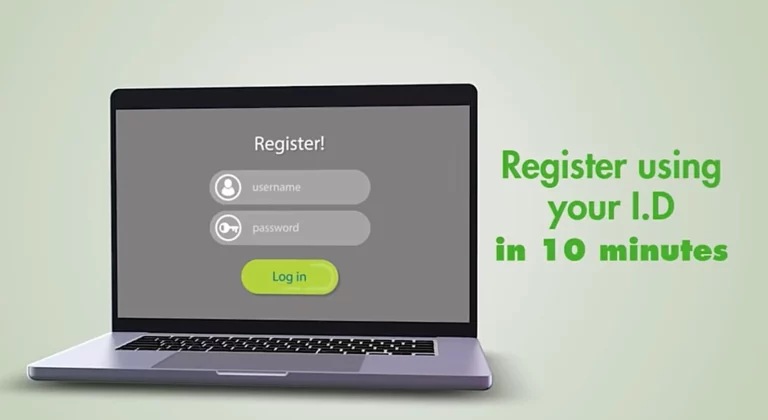The Philippines has a growing demand for financial services, making it a promising market for entrepreneurs who want to establish lending businesses. However, before you can start offering loans, it’s crucial to understand the legal framework and registration process. In this blog post, we’ll provide a step-by-step guide on how to register a lending business in the Philippines.
Understanding the Legal Framework
Navigating the legal landscape is essential when starting a lending business in the Philippines. Here’s a deeper look at the key laws and regulations you need to be aware of:
a). Lending Company Regulation Act of 2007 (Republic Act No. 9474)
This comprehensive law is the cornerstone of the regulatory framework for lending companies in the Philippines. It sets out:
- Registration requirements: All lending businesses must register with the Securities and Exchange Commission (SEC) and obtain a Certificate of Authority to operate.
- Minimum paid-up capital: Lending companies must have a minimum paid-up capital of one million pesos (PHP 1,000,000.00).
- Foreign ownership restrictions: While 100% foreign ownership of a lending investor is allowed, there might be restrictions on foreign nationals holding specific positions within the company.
- Interest rate caps: The law sets limits on the interest rates that lending companies can charge.
- Disclosure requirements: Lending companies must comply with the “Truth in Lending Act” to ensure transparency for borrowers.
b). Truth in Lending Act (Republic Act No. 3765)
This law focuses on protecting the rights of borrowers. It mandates that lending companies in the Philippines must clearly disclose the following to potential borrowers:
- True cost of the loan
- Interest rates
- All applicable fees and charges
- Payment terms and conditions
- Penalties for late payment
Other Relevant Regulations
In addition to the core laws mentioned above, lending businesses in the Philippines must also comply with other regulations, including:
- Anti-Money Laundering Act: Lending businesses have obligations to prevent their services from being used for money laundering activities.
- Data Privacy Act: Lending companies must protect the personal information of their borrowers.
- Bangko Sentral ng Pilipinas (BSP) Circulars: The BSP may issue circulars and guidelines that provide additional rules for lending activities.
Importance of Legal Compliance
Registering a lending business in the Philippines means adhering to the rules and regulations set forth by the SEC and other relevant authorities. Failing to comply can result in penalties, fines, or even the revocation of your Certificate of Authority. For a smooth and sustainable business, it’s essential to:
- Consult with a lawyer: Seek professional legal advice to guide you through the registration process and understand your ongoing compliance obligations.
- Stay updated: Keep track of changes or updates to laws and regulations that might affect your lending business.
By understanding the legal framework, you can ensure that your lending business is established and operates on a solid legal foundation.
Registering Your Lending Business in the Philippines
Here’s a breakdown of the key steps involved in registering a lending business in the Philippines:
1. Choose a Business Structure
The most suitable structure for lending businesses in the Philippines is a corporation. It establishes your business as a separate legal entity, limiting your personal liability and providing a formal framework for operations.
2. Secure a Company Name
- Corporate Name Requirements: Your chosen business name must include the terms “Lending Company” or “Lending Investor” to clearly signify the nature of your business.
- Name Reservation: Submit your proposed company name to the Securities and Exchange Commission (SEC) for verification and reservation.
3. Meet the Minimum Paid-up Capital Requirement
- Capital Funds: The Lending Company Regulation Act of 2007 requires a minimum paid-up capital of one million pesos (PHP 1,000,000.00) for newly established lending companies.
- Deposit: This amount must be deposited in a bank account under the official company name. Proof of this deposit will be required by the SEC during registration.
4. Prepare Your Articles of Incorporation and By-Laws
- Articles of Incorporation: This document outlines the basic information about your corporation, including its name, purpose, duration, principal address, capitalization, and the names of the incorporators and directors.
- By-Laws: These provide the internal rules and regulations that govern your corporation’s operations, covering aspects like shareholder/board meetings, officers, and conflict resolution.
- Legal Assistance: It’s highly recommended to work with a lawyer to ensure your Articles of Incorporation and By-Laws are drafted correctly and comply with legal requirements.
5. Register with the Securities and Exchange Commission (SEC)
- Submission of Documents: The formal registration process involves submitting the following key requirements to the SEC:
- Articles of Incorporation and By-Laws
- Notarized Treasurer’s Affidavit (confirming the paid-up capital)
- Statement of Assets and Liabilities
- List of stockholders, directors, and officers (including their Tax Identification Numbers)
- Bank certificate (as proof of paid-up capital deposit)
- Clearance from the Bangko Sentral ng Pilipinas (BSP)
- Other supporting documents as required
- Registration Fees: Be prepared to pay the applicable registration fees to the SEC.
6. Obtain a Certificate of Authority from the SEC
- Separate Application: While registering your lending company with the SEC establishes it as a corporation, it doesn’t automatically grant permission to operate as a lending business. You’ll need to submit a separate application for a Certificate of Authority.
- SEC Review: The SEC will thoroughly evaluate your application and supporting documents to ensure compliance with the Lending Company Regulation Act and other relevant regulations.
- Approval: Upon approval, the SEC will issue your Certificate of Authority, officially licensing your business to offer loan services.
7. Register with Other Government Agencies
- Essential Registrations: After obtaining your SEC registration and Certificate of Authority, you must also register your lending company with the following government agencies:
- Bureau of Internal Revenue (BIR) – to secure tax identification numbers and manage tax obligations.
- Social Security System (SSS), Home Development Mutual Fund (HDMF or Pag-IBIG Fund), and PhilHealth – to register your employees for social benefits.
- Local government units (e.g., City hall, Barangay) – to obtain necessary business permits and licenses at the local level.
Tips for Starting a Lending Business in the Philippines
Here are some valuable tips to help you successfully launch and operate your lending business:
Develop a Detailed Business Plan
Start with a solid foundation. Your business plan should include:
Target market: Clearly define your ideal borrower. Are you focusing on small businesses, individuals, or a particular niche (e.g., students, salary loans)?
Competitive analysis: Study your competitors in the lending industry. What are their strengths, weaknesses, and interest rates?
Marketing strategies: Plan how you’ll attract borrowers and differentiate yourself in the lending market.
Financial projections: Develop detailed forecasts for revenue, expenses, and profitability.
Risk management: Outline measures to assess borrower creditworthiness and mitigate potential loan defaults.
Conduct Thorough Market Research
A deep understanding of the Philippines lending sector is crucial. Investigate:
Borrower demographics: Identify the needs and financial behaviors of your potential borrowers.
Interest rate trends: Stay informed about prevailing interest rates in the market.
Regulatory changes: Monitor updates to laws impacting the lending industry.
Comply with Regulatory Requirements
Staying compliant is non-negotiable. Familiarize yourself with:
Lending Company Regulation Act (RA 9474): Ensure your business complies with all requirements.
Truth in Lending Act: Adhere to transparency guidelines when disclosing loan terms.
Anti-Money Laundering Regulations: Implement measures to prevent illegal financial activities.
Implement Robust Lending Practices
Mitigate risk and ensure responsible lending with these practices:
Clear credit policies: Define your criteria for borrower evaluation.
Due diligence: Conduct thorough background checks on loan applicants.
Appropriate collateral requirements: Consider the type of collateral you’ll accept to secure loans.
Loan monitoring: Establish procedures to track loan payments and manage collections.
Prioritize Customer Service
In a competitive market, excellent customer experience sets you apart. Invest in:
Prompt response times: Address inquiries and resolve issues quickly.
Clear communication: Explain loan terms and processes in plain language.
Fair treatment: Treat borrowers with respect and abide by ethical lending practices.
Leverage Technology
Streamline operations and enhance customer experience with the right technological tools:
Loan management software: Implement systems for loan processing, tracking, and reporting.
Online application portals: Offer secure and convenient online loan applications.
Data analytics: Utilize data to optimize your lending strategies and decision-making.
Consider Partnerships
Strategic partnerships can accelerate your growth and reach in the lending market. Explore potential collaborations with:
Financial institutions: Partner with banks or other financial service providers.
Technology companies: Leverage innovative fintech solutions.
Remember, starting a lending business in the Philippines requires careful planning, dedication, and compliance with the legal framework. By following these tips, you increase your chances of building a successful and sustainable lending enterprise.
Q: What is a lending investor in the Philippines?
A: A lending investor in the Philippines is a person or entity that engages in providing financial assistance through small loans to individuals or businesses.
Q: What are the legal requirements to start a micro-lending business?
A: To start a micro-lending business in the Philippines, you need to register your company, obtain a Certificate of Authority to Operate from the relevant government agencies, and comply with the regulations set for financing companies.
Q: How can I open a lending investor in the Philippines?
A: To open a lending investor in the Philippines, you need to follow the application process, meet the legal requirements, and secure the necessary permits and licenses to operate as a lending company.
Q: What is the process for starting a micro-lending business?
A: The process of starting a micro-lending business involves business registration, obtaining the required permits, setting up your lending operations, and complying with the regulations governing financing companies.
Q: Do lending companies in the Philippines need to register with government agencies?
A: Yes, lending companies in the Philippines need to register with relevant government agencies and obtain the necessary permits and licenses to legally operate their business.
Q: What types of services do financing and lending companies provide?
A: Financing and lending companies provide services such as consumer lending, offering small loans, and catering to the financial needs of individuals and businesses according to the lending company’s terms and conditions.
Q: How many persons should be involved in establishing a lending business in the Philippines?
A: According to the regulations, a lending business in the Philippines should have at least 19 persons involved in the operation of the company.
Q: What are some key considerations when operating a lending business in the Philippines?
A: When operating a lending business in the Philippines, it is important to comply with the regulations set for financing companies, provide necessary documentation for audits, and ensure transparency in every lending transaction.
Wrap!
By following these steps and understanding the legal requirements, you can successfully register a lending business in the Philippines. Thorough planning, compliance, and customer focus will lay a strong foundation for your business in the growing lending industry.
Read also:
- Is Money Lending Business Illegal in the Philippines? A Guide for Lenders and Borrowers
- Is Lending a Good Business in the Philippines? Read Before You Start
- How to Start a Lending Business in the Philippines
- #5 Types of Business Loans in the Philippines You Should Know
- Small Lending Business Tips in the Philippines: A Comprehensive Guide




